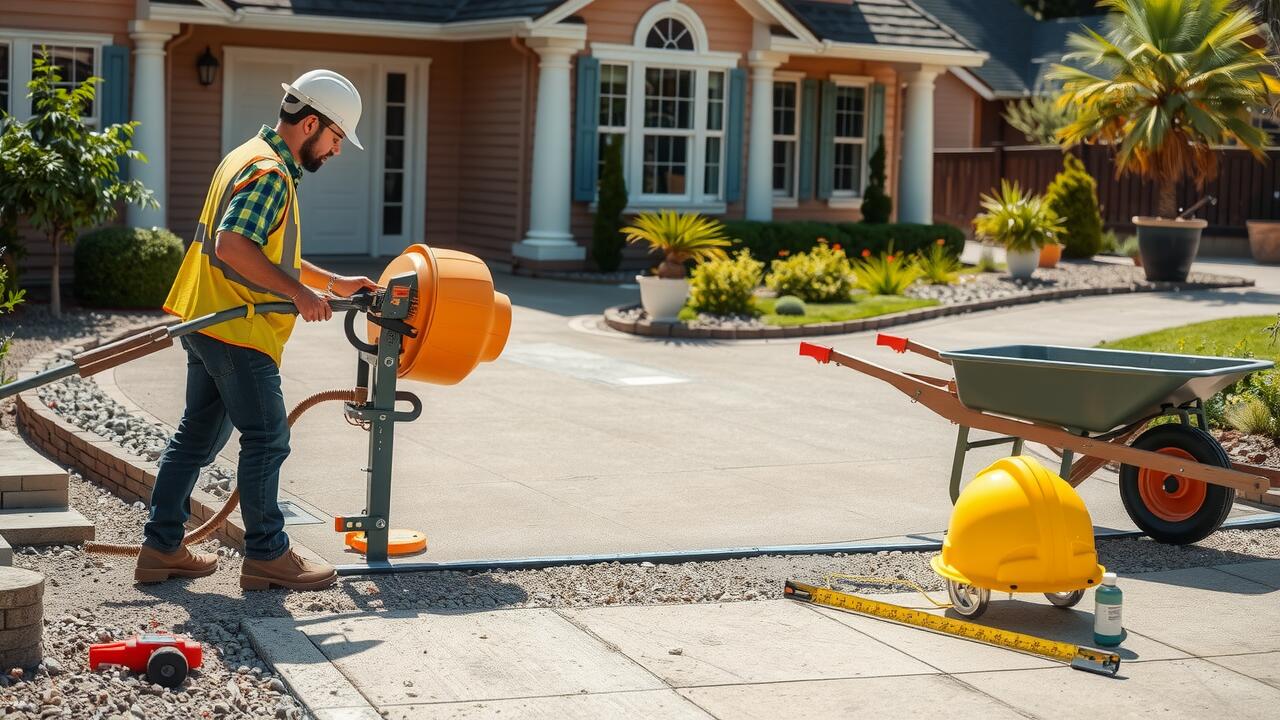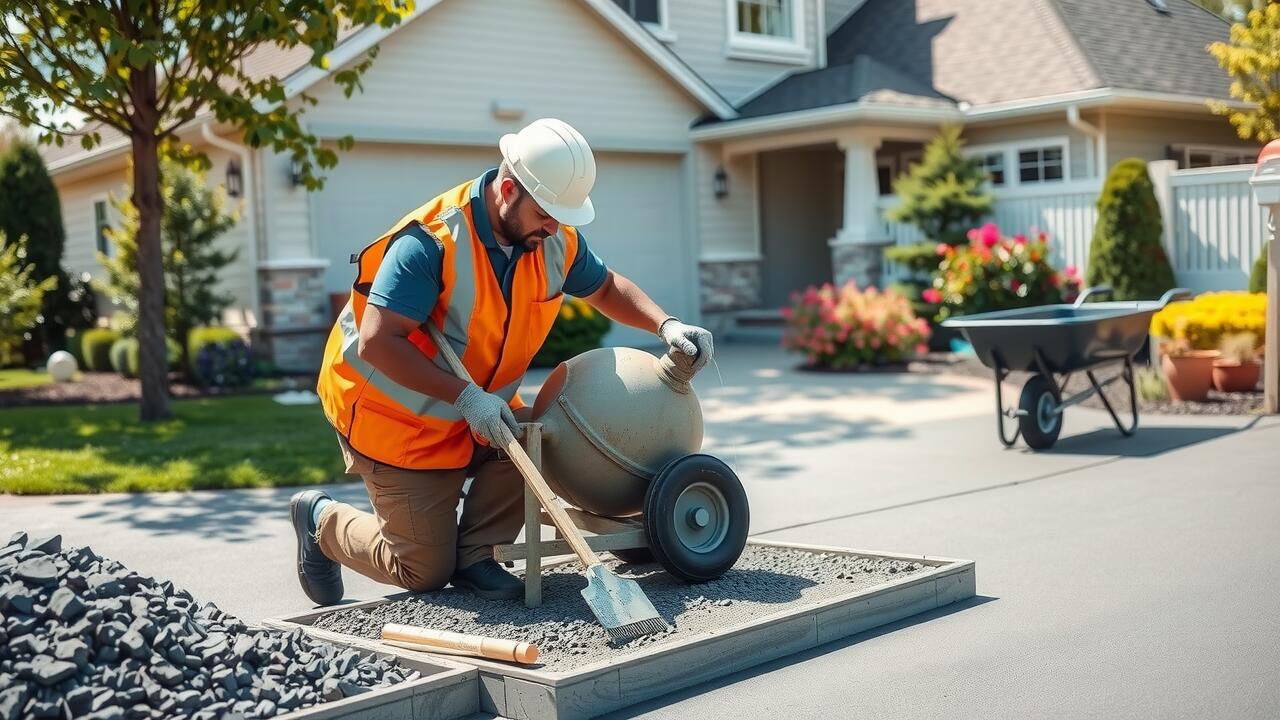
Permeable Pavers
Permeable pavers are gaining popularity as an eco-friendly option for driveway installation. These pavers allow water to seep through, reducing runoff and promoting groundwater recharge. They come in various materials, including concrete, brick, and stone, providing aesthetic versatility while offering functional benefits. This drainage capability helps prevent flooding and minimizes erosion, making permeable pavers an excellent choice for environmentally conscious homeowners.
The initial cost of permeable pavers can be higher than traditional materials, but their long-term benefits often justify the investment. With proper installation, they can last for many years while requiring minimal maintenance. This makes them an attractive option for those looking to balance eco-friendliness with affordability. Additionally, considering the water conservation benefits, many homeowners find the investment pays off when factoring in potential savings on water-related issues in the surrounding landscape.
Environmental Benefits and Cost
Permeable pavers offer a sustainable alternative for those considering driveway installation. These materials allow water to seep through the surface, reducing runoff and minimizing the risk of flooding. By promoting natural drainage, permeable pavers also help replenish groundwater supplies, contributing to local ecosystems. Their ability to manage stormwater efficiently makes them an environmentally friendly choice for homeowners prioritizing sustainability in their landscaping decisions.
In terms of cost, permeable pavers can vary based on materials and installation methods. While the initial investment might be higher than traditional pavement options, the long-term benefits often outweigh these costs. Homeowners may save on water management systems and potential fines for excess runoff. Furthermore, many regions offer incentives or rebates for eco-conscious projects, making this an attractive option for budget-minded individuals seeking a balance between affordability and environmental impact.
Recycled Materials
Using recycled materials for driveway installation can significantly reduce costs while also contributing to sustainability. Options such as crushed concrete, reclaimed brick, and recycled asphalt not only provide durable surfaces but also add a unique character to your driveway. These materials are often sourced locally, which further cuts down transportation costs and supports the community.
Incorporating recycled materials can also enhance drainage and reduce the environmental impact of your driveway. Homeowners can combine different textures and colors to create a custom look, making recycled options a versatile choice. With a little creativity and planning, recycled materials can turn a standard driveway installation into an eco-friendly project that lasts for years.
Eco-Friendly and Budget-Friendly Options
Using recycled materials for driveway installation offers an excellent opportunity to reduce costs while being environmentally conscious. Options such as crushed concrete, reclaimed asphalt, or even recycled rubber can provide durable surfaces without the hefty price tag of conventional materials. These choices often require less overall maintenance due to their inherent resilience and stability, making them a wise long-term investment.
Moreover, utilizing eco-friendly materials can lead to significant savings in the overall project budget. Homeowners can often find local suppliers who offer these materials at a reduced rate or even for free. Additionally, incorporating sustainable practices into the driveway installation process can further lower expenses. Simple choices, such as selecting permeable options that minimize stormwater runoff, can ultimately save on future drainage costs.
DIY Driveway Installation
DIY driveway installation can significantly reduce costs associated with hiring professionals. By taking on the project yourself, you can save money on labor costs while also customizing the driveway to suit your preferences. Before beginning, it’s essential to research different materials and tools to ensure you select the right options for your needs. Proper planning and preparation are vital to achieving a successful outcome.
One of the primary benefits of DIY driveway installation is the opportunity to learn new skills. You can gain hands-on experience in landscaping, masonry, or proper drainage techniques, which can be valuable for future projects. Make sure to follow local regulations and obtain any necessary permits before starting. By dedicating time and effort to the installation process, you can create a functional and aesthetically pleasing driveway that enhances your property value.
Tips for Cutting Costs
Choosing the right materials can significantly impact your overall costs during driveway installation. Opting for less expensive options like gravel or asphalt can save you money compared to concrete or pavers. Additionally, considering local suppliers can lead to better pricing and lower transportation expenses. Researching alternative materials, such as recycled asphalt or concrete, may also provide both eco-friendliness and cost savings.
Another effective way to reduce expenses is to handle the installation yourself. This approach minimizes labor costs and allows you to control the entire process. Make sure to educate yourself on the most suitable installation techniques for your chosen material. Seeking help from friends or family can make the project more manageable while further cutting costs. Investing time into planning and preparation can lead to a successful driveway installation without breaking the bank.
FAQS
What is the cheapest material for a new driveway?
The cheapest materials for a new driveway typically include gravel, asphalt, or permeable pavers, with gravel often being the most affordable option.
Are permeable pavers a good option for budget-conscious homeowners?
Yes, permeable pavers can be cost-effective and environmentally friendly, especially when considering their long-term benefits such as reduced stormwater runoff and potential savings on drainage systems.
How can recycled materials help reduce driveway costs?
Using recycled materials, like crushed concrete or reclaimed asphalt, can significantly lower costs while also being an eco-friendly option that contributes to sustainability.
What DIY tips can help cut costs when installing a driveway?
To save money on DIY driveway installation, consider doing the project in phases, renting equipment instead of buying, using cost-effective materials, and enlisting the help of friends or family.
Are there any hidden costs associated with driveway installation?
Yes, potential hidden costs may include site preparation, drainage solutions, landscaping adjustments, and maintenance costs, so it’s important to budget for these additional expenses.
